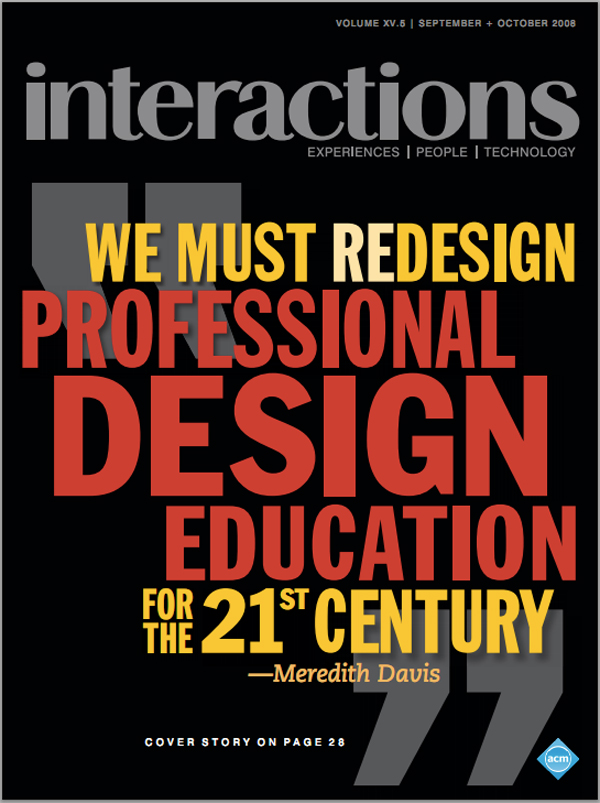Authors:
Hugh Dubberly
In the early 20th century, our understanding of physics changed rapidly; now our understanding of biology is undergoing a similar rapid shift. Freeman Dyson wrote: "It is likely that biotechnology will dominate our lives and our economic activities during the second half of the twenty-first century, just as computer technology dominated our lives and our economy during the second half of the twentieth [1]." Recent breakthroughs in biology are largely about informationunderstanding how organisms encode it, store, reproduce, transmit, and express itmapping genomes, editing DNA sequences, mapping cell-signaling pathways. Changes in our understanding of physics, accompanied by rapid industrialization,…
You must be a member of SIGCHI, a subscriber to ACM's Digital Library, or an interactions subscriber to read the full text of this article.
GET ACCESS
Join ACM SIGCHIIn addition to all of the professional benefits of being a SIGCHI member, members get full access to interactions online content and receive the print version of the magazine bimonthly.
Subscribe to the ACM Digital Library
Get access to all interactions content online and the entire archive of ACM publications dating back to 1954. (Please check with your institution to see if it already has a subscription.)
Subscribe to interactions
Get full access to interactions online content and receive the print version of the magazine bimonthly.







Post Comment
No Comments Found